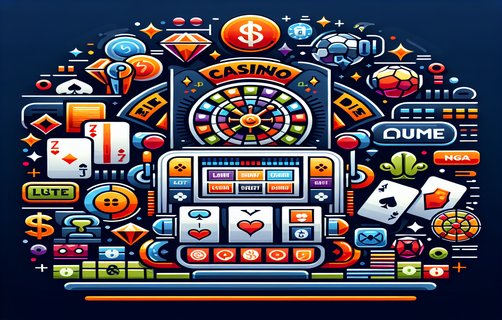Strategies for Success in Gamification: An Economic Theory Perspective
In the dynamic landscape of gaming and casino environments, understanding the interconnected elements that drive success is essential. My experience in social media marketing, paired with the principles of economic theory, has led me to identify key strategies for optimizing outcomes in various gaming scenarios. This synthesis not only applies to traditional gaming platforms but also embraces the rapidly evolving digital scene, specifically in context to win multipliers, RNG (Random Number Generator), and strategic betting methodologies.
Social Media Marketing plays a pivotal role in attracting new players and retaining existing ones. By leveraging platforms such as Instagram, Twitter, and Facebook, casinos and game developers can create a buzz around their offerings, utilizing targeted ads to reach demographics most likely to engage. Economic theory suggests that consumer behavior is heavily influenced by external stimuli, making social media a valuable tool in shaping demand. Furthermore, platforms that successfully integrate user-generated content often benefit from an organic marketing boost, as testimonials and shared experiences enhance credibility and encourage participation.
In this digital age, understanding the Random Number Generator (RNG) mechanics is crucial. RNGs ensure that every game outcome is random and fair, fostering trust among players. However, from an economic viewpoint, it is essential to recognize that RNGs can be programmed with varying volatility levels, which can significantly alter the attractiveness of a game. Games with high win multipliers might attract more players due to the perceived potential for lucrative returns, but they may also result in higher variance and risk. Thus, a careful balance in game design can create sustained player engagement while also ensuring profitability for the house.

Moving to the strategy of continuing aggression in gameplay, this refers to the idea that assertiveness can lead to better outcomes. Economic theories around competitive behavior suggest that players who take calculated risks often reap higher rewards. By understanding the tendencies of opponents and applying pressure in critical moments, aggressive players can exploit weaknesses—especially in a game where psychology and strategy converge, such as poker or blackjack. This highlights the importance of spotting weak players, which can provide a significant competitive edge. Identifying players who make impulsive decisions or lack strategic thinking allows more experienced players to tailor their approach and maximize their chances of winning.

From an analytical perspective, we must analyze from multiple angles when developing strategies in gaming. This involves assessing not only one’s own gameplay and tendencies but also recognizing patterns in opponents’ behaviors. Understanding the economic principle of game theory can be invaluable here, as it allows players to predict and react to opponents based on their likely decisions. Players can enhance their strategies by studying past game outcomes, considering opponent styles, and adjusting their tactics accordingly.
In addition, the concept of spread betting strategy deserves attention. Unlike traditional betting where wagers are fixed, spread betting allows players to bet on the outcome of a game based on margins. This introduces an additional layer of strategic decision-making, where players must accurately predict not only the outcome but also the extent of that outcome. The potential for higher returns is appealing, particularly in high-variance games, but it also elevates the risk. An understanding of market conditions and player tendencies becomes essential in determining when and how much to bet.
Finally, the notion of casino unionization introduces an interesting socio-economic dynamic to gaming environments. This involves workers’ rights and collective bargaining within casinos, which can impact operations and ultimately player experiences. A well-treated workforce can lead to improved service quality and atmosphere, thereby influencing player satisfaction and retention rates. In a broader sense, studying the economic implications of labor relations within the casino industry highlights the importance of operational integrity in maintaining a thriving environment for both players and staff.
In conclusion, integrating the understanding of social dynamics, economic theory, and strategic gameplay not only enhances individual player experiences but also contributes to the broader narrative of success within the gaming industry. Embracing these multifaceted strategies can lead to optimized engagement in an ever-evolving market.
